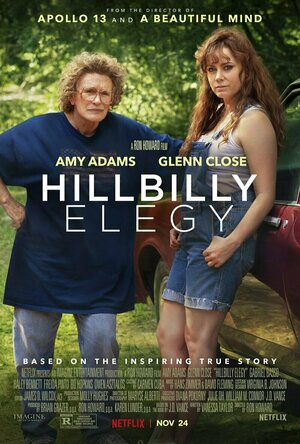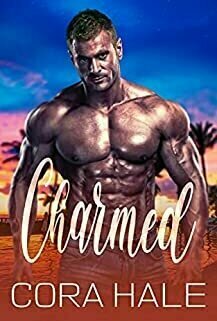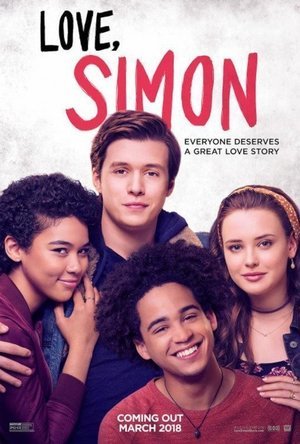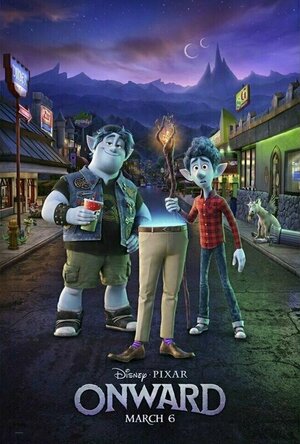Search
Search results
Bob Mann (459 KP) rated Hillbilly Elegy (2020) in Movies
Apr 22, 2021
General Shoutiness and a glowering Glenn Close
I missed Ron Howard's "Hillbilly Elegy" when it came out at the end of last year, but principally wanted to catch up on it to see Glenn Close's Oscar nominated performance before Sunday's Oscars.
Positives:
- When this film started, I suspected that the Glenn Close nomination might be another 'Judi Dench in Shakespeare in Love' - - where her acceptance speech is longer than the time spent on screen! But no. Because of the flashback format deployed in the film, she actually gets a good amount of air time. And it's a really solid and impressive performance.
- The supporting cast is also good. Amy Adams is given a lot to do with a challenging role, and (just about) pulls it off. And young Owen Asztalos as the younger J. D. particularly impressed me.
Negatives:
- Although it's based on J. D. Vance's true life story, I really struggled to get very invested in the story. The choppy nature of the narrative - hopping repeatedly between 'the present' and multiple flashback timelines - really doesn't help with this.
- The whole J. D. / Usha romance element almost felt like it belonged in a different film. In fact, I found it frustrating that I found the elements with J. D.'s struggles at college, with the emerging love and guidance of Usha, as a more compelling narrative than the druggie mother lead story. Perhaps the movie was just trying to be too ambitious?
- Apart from one 'personal decision' scene in a motel bedroom, there's not much of an "up-side" to the story for the viewer to take away. It's not a movie that I found a positive experience.
Viewer Advisory;
If you've had any history of life in a dysfunctional family, there is a lot of shouting, slapping and general tension in this movie which you might find disturbing.
Summary Thoughts:
So, I came to this to see the performance of Glenn Close, and it's very good. I would personally be surprised if she takes the Oscar for this. However, having been nominated eight times before and never won, the 'sympathy vote' may play here.
But one of my bellweathers for a movie is to think whether I'll remember it in six months time. I'm afraid this one is unlikely to pass the test. If you say "Hillbilly Elegy" to me in October, I'll probably recall a whole lot of shouty people and Glenn Close glowering at me from the screen. That's not a wholly great recommendation for a movie. Sorry Mr Howard, but this one's a 'miss' for me.
(For the full graphical review, please see the One Mann's Movies review here - https://bob-the-movie-man.com/2021/04/21/hillbilly-elegy-review/ ).
Positives:
- When this film started, I suspected that the Glenn Close nomination might be another 'Judi Dench in Shakespeare in Love' - - where her acceptance speech is longer than the time spent on screen! But no. Because of the flashback format deployed in the film, she actually gets a good amount of air time. And it's a really solid and impressive performance.
- The supporting cast is also good. Amy Adams is given a lot to do with a challenging role, and (just about) pulls it off. And young Owen Asztalos as the younger J. D. particularly impressed me.
Negatives:
- Although it's based on J. D. Vance's true life story, I really struggled to get very invested in the story. The choppy nature of the narrative - hopping repeatedly between 'the present' and multiple flashback timelines - really doesn't help with this.
- The whole J. D. / Usha romance element almost felt like it belonged in a different film. In fact, I found it frustrating that I found the elements with J. D.'s struggles at college, with the emerging love and guidance of Usha, as a more compelling narrative than the druggie mother lead story. Perhaps the movie was just trying to be too ambitious?
- Apart from one 'personal decision' scene in a motel bedroom, there's not much of an "up-side" to the story for the viewer to take away. It's not a movie that I found a positive experience.
Viewer Advisory;
If you've had any history of life in a dysfunctional family, there is a lot of shouting, slapping and general tension in this movie which you might find disturbing.
Summary Thoughts:
So, I came to this to see the performance of Glenn Close, and it's very good. I would personally be surprised if she takes the Oscar for this. However, having been nominated eight times before and never won, the 'sympathy vote' may play here.
But one of my bellweathers for a movie is to think whether I'll remember it in six months time. I'm afraid this one is unlikely to pass the test. If you say "Hillbilly Elegy" to me in October, I'll probably recall a whole lot of shouty people and Glenn Close glowering at me from the screen. That's not a wholly great recommendation for a movie. Sorry Mr Howard, but this one's a 'miss' for me.
(For the full graphical review, please see the One Mann's Movies review here - https://bob-the-movie-man.com/2021/04/21/hillbilly-elegy-review/ ).

Hurricane Tracker
Weather
App
8 years of tracking storms on iOS! Hurricane Tracker launched in Aug 2009! Reviewed by CNN as the...

Contacts Journal CRM
Business and Productivity
App
Contacts Journal CRM is a powerful tool that will transform your business and personal...
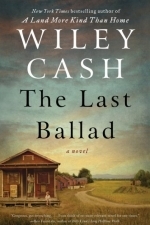
The Last Ballad
Book
The author of the celebrated bestseller A Land More Kind Than Home returns with this eagerly awaited...
Historical fiction
Movie Metropolis (309 KP) rated Love, Simon (2018) in Movies
Jun 10, 2019
One of the most important films in a generation
I don’t think anyone will have any qualms in me saying that the LGBT community is one of the most vastly underrepresented parts of society when it comes to mainstream Hollywood movies.
Sure, we’ve had indie hits like Call Me by Your Name and Moonlight that have also performed well at the Oscars, but the closest we’ve ever gotten to a mass-market crowd pleaser has been Ang Lee’s 2005 flick Brokeback Mountain and if we’re being honest, that wasn’t marketed in a way that made it particularly mainstream.
Aiming to change all that is Love, Simon. Based on the novel Simon vs. the Homo Sapiens Agenda by Becky Albertalli, Love, Simon is the first truly mainstream rom-com that features a lead gay character. But is the film a beacon of hope for a massively underrepresented LGBT community or a movie that daren’t go too far?
Everyone deserves a great love story, but for 17-year-old Simon Spier (Nick Robinson), it’s a little more complicated. He hasn’t told his family or friends that he’s gay, and he doesn’t know the identity of the anonymous classmate that he’s fallen for online. Resolving both issues proves hilarious, terrifying and life-changing.
Love, Simon is one of the most important films in a generation. Aiming to please both everyday movie-goers and be sensitive to the issues that gay people face on a daily basis, it needs to tread a very careful line, and I’m pleased to say, it does so beautifully. From the exceptional performances of the entire cast, to the warming attempts at humour, it succeeds on almost every level.
Jurassic World’s Nick Robinson is outstanding as Simon. A 17-year-old who consistently struggles to accept who he truly is would be an incredibly difficult role for even the most seasoned actors to take on, but he really is wonderful to watch. As we journey across his troubled story, the audience feels fully immersed in his actions, even those that are, shall we say, questionable.
The supporting cast too, is excellent. Jennifer Garner and Josh Duhamel are a great, if slightly underused presence, as Simon’s parents and along with his sister Nora (played by Talitha Bateman), they make an entirely believable family unit and it’s lovely to see them rallying around him when the inevitable ‘outing’ occurs. One touching scene in particular featuring Garner speaking to her son is sure to turn on the waterworks for many.
Love, Simon is a film with a massive heart anchored by a beautifully raw performance by Nick Robinson
Director Greg Berlanti is a relative newcomer to the world of romantic comedy, but he leads with a confidence that makes him appear seasoned at this game. Touching scenes of emotion are nicely interspersed with sequences of genuinely funny comedy – the sign of a great rom-com.
Special mention must go to Natasha Rothwell as drama teacher Ms. Albright, who manages to garner most of the laughs throughout. All of this culminates in a sweet finale that ties together everything that’s happened over the previous 110 minutes very well indeed.
If we’re to look at some of the flaws then it’s fair to say that the story outside of it featuring a gay lead is completely unoriginal. It’s been done before, but that’s kind of its charm. Flipping the classic rom-com story on its head by allowing audiences across the world to see that being gay really isn’t easy is a really nice thing to see.
In a nutshell, Love, Simon is a film with a massive heart anchored by a beautifully raw performance by Nick Robinson. It’ll make you laugh and it’ll make you cry, but this is a touching romantic comedy that will absolutely go down in the history books of film. Like Brokeback Mountain did for the older gay man, Love, Simon can be a shining light for young men who are struggling to accept who they truly are.
Is this a turning point for Hollywood? Well, let’s hope so.
https://moviemetropolis.net/2018/04/07/love-simon-review-one-of-the-most-important-films-in-a-generation/
Sure, we’ve had indie hits like Call Me by Your Name and Moonlight that have also performed well at the Oscars, but the closest we’ve ever gotten to a mass-market crowd pleaser has been Ang Lee’s 2005 flick Brokeback Mountain and if we’re being honest, that wasn’t marketed in a way that made it particularly mainstream.
Aiming to change all that is Love, Simon. Based on the novel Simon vs. the Homo Sapiens Agenda by Becky Albertalli, Love, Simon is the first truly mainstream rom-com that features a lead gay character. But is the film a beacon of hope for a massively underrepresented LGBT community or a movie that daren’t go too far?
Everyone deserves a great love story, but for 17-year-old Simon Spier (Nick Robinson), it’s a little more complicated. He hasn’t told his family or friends that he’s gay, and he doesn’t know the identity of the anonymous classmate that he’s fallen for online. Resolving both issues proves hilarious, terrifying and life-changing.
Love, Simon is one of the most important films in a generation. Aiming to please both everyday movie-goers and be sensitive to the issues that gay people face on a daily basis, it needs to tread a very careful line, and I’m pleased to say, it does so beautifully. From the exceptional performances of the entire cast, to the warming attempts at humour, it succeeds on almost every level.
Jurassic World’s Nick Robinson is outstanding as Simon. A 17-year-old who consistently struggles to accept who he truly is would be an incredibly difficult role for even the most seasoned actors to take on, but he really is wonderful to watch. As we journey across his troubled story, the audience feels fully immersed in his actions, even those that are, shall we say, questionable.
The supporting cast too, is excellent. Jennifer Garner and Josh Duhamel are a great, if slightly underused presence, as Simon’s parents and along with his sister Nora (played by Talitha Bateman), they make an entirely believable family unit and it’s lovely to see them rallying around him when the inevitable ‘outing’ occurs. One touching scene in particular featuring Garner speaking to her son is sure to turn on the waterworks for many.
Love, Simon is a film with a massive heart anchored by a beautifully raw performance by Nick Robinson
Director Greg Berlanti is a relative newcomer to the world of romantic comedy, but he leads with a confidence that makes him appear seasoned at this game. Touching scenes of emotion are nicely interspersed with sequences of genuinely funny comedy – the sign of a great rom-com.
Special mention must go to Natasha Rothwell as drama teacher Ms. Albright, who manages to garner most of the laughs throughout. All of this culminates in a sweet finale that ties together everything that’s happened over the previous 110 minutes very well indeed.
If we’re to look at some of the flaws then it’s fair to say that the story outside of it featuring a gay lead is completely unoriginal. It’s been done before, but that’s kind of its charm. Flipping the classic rom-com story on its head by allowing audiences across the world to see that being gay really isn’t easy is a really nice thing to see.
In a nutshell, Love, Simon is a film with a massive heart anchored by a beautifully raw performance by Nick Robinson. It’ll make you laugh and it’ll make you cry, but this is a touching romantic comedy that will absolutely go down in the history books of film. Like Brokeback Mountain did for the older gay man, Love, Simon can be a shining light for young men who are struggling to accept who they truly are.
Is this a turning point for Hollywood? Well, let’s hope so.
https://moviemetropolis.net/2018/04/07/love-simon-review-one-of-the-most-important-films-in-a-generation/
Emma @ The Movies (1786 KP) rated Onward (2020) in Movies
Mar 15, 2020
I had very mixed feelings about Onward after seeing the trailer, it didn't feel like Pixar and if you'd shown it to me out of context I'd never have guessed it was them.
It's Ian's 16th birthday and things aren't exactly going to plan. To cheer him up his mum gives him and his brother a present left for them by their late father. In a world that has forgotten magic, their father had still believed, and he's leaving them a way that will allow them to see him again. When the only way to complete the spell means finding something long forgotten the brothers must embark on a quest, one that older brother Barley has been preparing for his whole life.
Onward starts with a great potted history of magic in their world and how it's been replaced by modern amenities. It feels like they made a very quick change but I liked it over the sped-up timeline over many years, it actually summed up a more modern way of abandoning things that aren't convenient. It also allows you to have fun little moments of thinking about how things changed when you see flashes of their past during the film.
With Pixar you know that you're going to get that sentiment and deeper meaning that induces bucketloads of tears and in Onward it's a strong message about family and how the past weighs down on what's actually happening in the present. None of that meaning really feels like it's there until very late in the film though, the beginning is more like some generic off-brand fantasy adventure, and though the two ends fit together they don't seem like they belong together.
The mix of characters is fun but we don't get a proper introduction to who, or what, many of them are. It's a shame that with such a varied selection of creatures that most are just relegated to being quirky looking with no real function. There were at least things to appreciate from some of them, Colt counting I thought was a fun touch, and I loved Corey the Manticore, her whole transition through the film was funny and very entertaining.
Chris Pratt as Barley was the only spot on bit of casting for me, his happy-go-lucky demeanour fits the character and we're treated to some of that Starlord adventure. (My favourite Barley scene was definitely the bridge). Everyone else kind of felt a little... meh? I wasn't wowed, I wasn't hooked in trying to work out who the voices were, it all felt a little bland. Partly I think that's because I never felt like I learned anything about them. Sure, some bits were fun, but through most of the film I wasn't really bothered what happened to any of them.
The journey that brothers Ian and Barley go on is full of twists and turns, they're amusing but nothing we haven't really seen before. As I mentioned, the emotional payoff doesn't appear until very late, and it did reduce me to tears, but it could have been so much more. The build-up to it had no real substance, especially when you consider how meaningful it's conclusion is.
In fact, the build-up could have offered up so many different things. For a fantasy story with magic and mythical creatures it holds little to no magical feeling. There's no real spectacle or pizzazz to anything. When I think of magic in other films I get wonder and joy, but in Onward it's done more for jokes. Even at the climax of the film it takes on so much humour that it detracts from the emotions.
Dan Scalon's story is partly based on his own experiences (I'm assuming with less mythical creature though)... and that story is peak Pixar... but the world created around it isn't strong enough for the sentiment it portrays. Taking such a powerful message about family and bundling it up in something that doesn't have the usual Pixar strength and heart feels like a travesty to me.
Originally posted on: https://emmaatthemovies.blogspot.com/2020/03/onward-movie-review.html
It's Ian's 16th birthday and things aren't exactly going to plan. To cheer him up his mum gives him and his brother a present left for them by their late father. In a world that has forgotten magic, their father had still believed, and he's leaving them a way that will allow them to see him again. When the only way to complete the spell means finding something long forgotten the brothers must embark on a quest, one that older brother Barley has been preparing for his whole life.
Onward starts with a great potted history of magic in their world and how it's been replaced by modern amenities. It feels like they made a very quick change but I liked it over the sped-up timeline over many years, it actually summed up a more modern way of abandoning things that aren't convenient. It also allows you to have fun little moments of thinking about how things changed when you see flashes of their past during the film.
With Pixar you know that you're going to get that sentiment and deeper meaning that induces bucketloads of tears and in Onward it's a strong message about family and how the past weighs down on what's actually happening in the present. None of that meaning really feels like it's there until very late in the film though, the beginning is more like some generic off-brand fantasy adventure, and though the two ends fit together they don't seem like they belong together.
The mix of characters is fun but we don't get a proper introduction to who, or what, many of them are. It's a shame that with such a varied selection of creatures that most are just relegated to being quirky looking with no real function. There were at least things to appreciate from some of them, Colt counting I thought was a fun touch, and I loved Corey the Manticore, her whole transition through the film was funny and very entertaining.
Chris Pratt as Barley was the only spot on bit of casting for me, his happy-go-lucky demeanour fits the character and we're treated to some of that Starlord adventure. (My favourite Barley scene was definitely the bridge). Everyone else kind of felt a little... meh? I wasn't wowed, I wasn't hooked in trying to work out who the voices were, it all felt a little bland. Partly I think that's because I never felt like I learned anything about them. Sure, some bits were fun, but through most of the film I wasn't really bothered what happened to any of them.
The journey that brothers Ian and Barley go on is full of twists and turns, they're amusing but nothing we haven't really seen before. As I mentioned, the emotional payoff doesn't appear until very late, and it did reduce me to tears, but it could have been so much more. The build-up to it had no real substance, especially when you consider how meaningful it's conclusion is.
In fact, the build-up could have offered up so many different things. For a fantasy story with magic and mythical creatures it holds little to no magical feeling. There's no real spectacle or pizzazz to anything. When I think of magic in other films I get wonder and joy, but in Onward it's done more for jokes. Even at the climax of the film it takes on so much humour that it detracts from the emotions.
Dan Scalon's story is partly based on his own experiences (I'm assuming with less mythical creature though)... and that story is peak Pixar... but the world created around it isn't strong enough for the sentiment it portrays. Taking such a powerful message about family and bundling it up in something that doesn't have the usual Pixar strength and heart feels like a travesty to me.
Originally posted on: https://emmaatthemovies.blogspot.com/2020/03/onward-movie-review.html
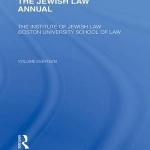
The Jewish Law Annual: Volume 18
Book
Volume 18 of The Jewish Law Annual contains six comprehensive articles on various aspects of Jewish...
